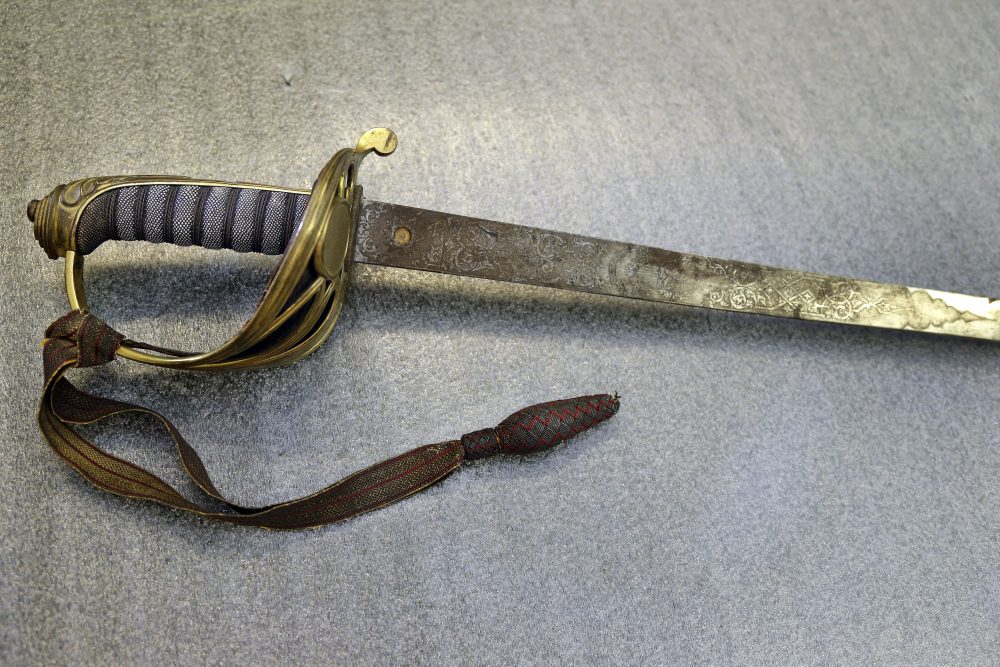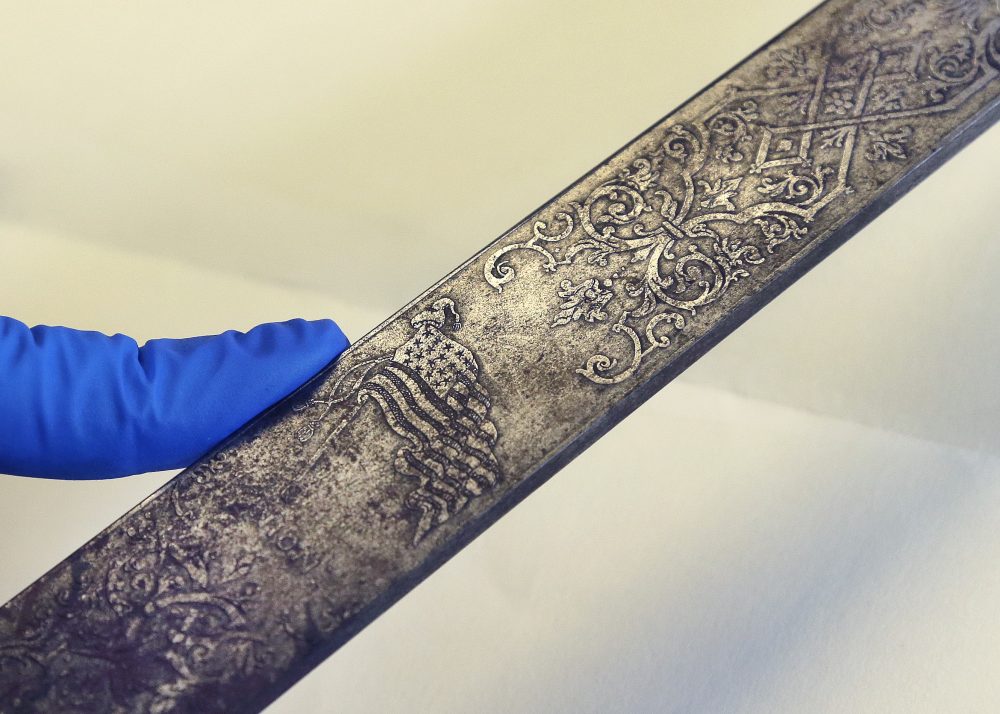Advertisement
Famous Civil War Sword Belonging To Robert Gould Shaw Found In Attic
Resume
Col. Robert Gould Shaw was the commanding officer of the 54th Massachusetts Volunteer Infantry Regiment, the first all-black regiment to fight for the Union during the Civil War. The story is told in the 1989 film "Glory," with Matthew Broderick playing the role of Shaw.
Shaw led his men in a charge against the Confederates holding Fort Wagner in South Carolina on July 18, 1863. It was a deadly and ultimately unsuccessful assault. More than 70 enlisted men and three officers from the 54th, including Shaw, were killed. The Rebels held the fort.
When Shaw was killed, he was carrying a brand-new sword that had been specially made for him by the English sword maker Henry Wilkinson.
"That was the Rolls-Royce of swords at the time," says Anne Bentley, a curator at the Massachusetts Historical Society in Boston. "And it was a very, very expensive and very valuable gift, and anyone who depended on a sword in war wanted a Wilkinson sword, so it was a generous gift from his uncle."
Shaw had only received the sword a couple of weeks before the battle of Fort Wagner. He had written to his father, "a box of Uncle George's containing a beautiful English sword came all right."
After Shaw fell, the sword was taken from his body. Bentley says a Confederate soldier probably sold it to an officer. But in 1865, a Union general named Charles Jackson Paine got word of it when he and his soldiers — some African-American — were camped near Goldsboro, North Carolina.
"Somebody came out of the house and asked if any of the black soldiers had been part of Shaw's regiment, because Shaw's sword was in a house in the neighborhood," Bentley says.
So Paine sent some of his men to retrieve it. Eventually the sword was returned to the Shaw family. It then went to Shaw's sister, Susanna Shaw Minturn.
"It was given to my father years ago, I think when he was a child, by his great-grandmother, Susanna Shaw Minturn," says Mary Wood Minturn. "My family never spoke about it. I never knew anything about it."
At least she didn't until a couple of years ago, when she and other members of her family were cleaning out their parents' home north of Boston, before they sold it. They actually found several swords in the attic. But Wood says one of them stood out.
"So we looked at it a little more closely, and discovered that it was very nicely engraved with the American flag, and on the other side it had the initials 'R.G.S.,'" Wood says. "That's when we knew, 'This is a special sword.'"

Needless to say they didn't put this sword out for the tag sale. But they did have to decide what to do with it.
"Well first of all my daughter said it should be kept in the family, and I said, 'What part of the family? We're just a small section. It should be shared with the world. It should be on display, and the right thing to do is to donate it.' So that's what we did."
Now the sword is part of the collection at the Massachusetts Historical Society, where it's on display for the first time. Bentley says when she holds the sword, she feels it represents more than simply a weapon of war. It's a link to something bigger.
"For me it's more the symbol that the sword is, rather than the object itself," Bentley says. "Because it represents not just Robert Gould Shaw, but it represents the aspirations, the dreams, the hopes and the sacrifices of all the men in the regiment."
The bravery displayed by the African-American soldiers from the Massachusetts 54th on July 18, 1863, was enough to convince Congress that African-Americans could be soldiers. So lawmakers authorized more black regiments, and by the end of the war more than 180,000 African-Americans had served. The 54th served with distinction until the end of the war.
President Lincoln credited the regiment, and the other African-Americans who fought for the Union, with helping win the Civil War.
This article was originally published on July 18, 2017.
This segment aired on July 18, 2017.
